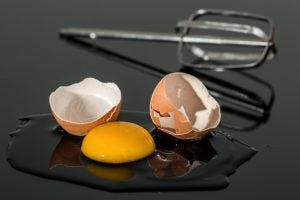Stop Wasting Your Money on BCAA’s
Save yourself from adding one more powder, pill, or drink to your existing cocktail of supplements.
This article was originally published on my personal Medium account.
Save yourself from adding one more powder, pill, or drink to your existing cocktail of supplements.
BCAA’s are one of the most exhaustingly flaunted supplements in the fitness industry. Fitness brands, emerging and veteran alike, have grown synonymous with BCAA’s, touting their “special and unique” formulation as the EPIC ratio of amino acids, guaranteed to help you pack on muscle with near-anabolic efficiency.
Hopefully, the skeptic in you finds it difficult to fall for such audacious marketing ploys. Nonetheless, you’d be hard pressed to enter a gym on any given day and not witness at least one person lugging around a sloshing gallon of bright neon BCAA fluid. Even many of the less-embellishing fitness zealots will advocate BCAA’s to at least some extent. I can’t help but wonder why? Do BCAA’s remain a hot commodity in the supplement market because of their alleged effects, or do lost hopefuls continue to cling on to the false pretensions of their fitness role models? Do BCAA’s really serve any valuable purpose?
The long story short: not enough to warrant their purchase.
What do BCAA’s do?
For starters, we have to understand what a branched chain amino acid actually is. BCAA’s, like all amino acids, are a foundational component of protein. The branched chain notation comes into play on a molecular level: a sequence on non-linear carbons results in a branch. (1)
The three BCAA’s, all of which are part of the nine essential amino acids, are leucine, isoleucine, and valine. Their purported benefits include protein synthesis acceleration and increased glucose absorption in the muscles. (Protein synthesis is the process by which muscles grow to adapt to training conditions, and glucose is broken down through the process of glycolysis to provide energy to muscles during exercise.) Admittedly, these effects can be supported by the literature, though not to the extent that many of supplement companies would have you believe. (2) (3)
Eroding the BCAA Pitch
At this point, all I’ve demonstrated is that BCAA’s are effective in, at least, some capacity for muscle-building purposes. That being said, the multibillion dollar supplement industry is never afraid to inflate science and inject hype; such is the case with BCAA’s. When we adjust our perspective to consider their valuation in the grand scheme of things, the proposal quickly loses weight:
1. BCAA’s have little impact on a diet already balanced with adequate protein
Most research supporting BCAA usage juxtaposes BCAA supplement users against subjects who aren’t taking in adequate protein to begin with. (4) When we look at research which compares BCAA usage with consumption of high quality proteins containing similar amounts of BCAA’s, we find that muscle protein synthesis is about 50% higher in the group consuming high quality, protein rich food over a BCAA supplement. (5)
We already know that protein supports protein synthesis (who would’ve thunk it, right?). (6) Therefore, it’s only logical to assume that increasing BCAA’s would, transitively, increase protein intake and, thereby, protein synthesis. However, BCAA’s alone cannot provide sufficient protein for the purpose of optimizing muscle gain. That being said, if the most substantial benefit of BCAA usage comes from its ability to satisfy overall protein demands, the potential for BCAA supplementation to impact protein synthesis decreases as overall protein intake increases. To the unwitting gym newb whose nutritional foundation is not solid to begin, this logic may not be initially apparent, and they may be susceptible to a ploy concealed by a veneer of misapplied research.
2. You will consume enough BCAA’s by eating enough protein
One serving of BCAA’s from supplementation contains anywhere from 1 to 6 grams of BCAA’s. For reference, a single 4 ounce serving of various meats (and, most notably, whey protein) have over 2 grams of leucine alone. (7) Therefore, it’s safe to assume that following the recommended protein intake for athletes set forth by literature (1 gram per pound of bodyweight) is more than ample in providing adequate BCAA’s throughout the day (roughly 20 grams). (8) (9)
What About for Cutting/Fasted Training?
Let’s get straight to the point: when combined with a protein-rich diet, the lean mass preserving effects of BCAA supplementation are inconsequential at best. (10) (11) (12) (13) (14)
Allow me to elaborate my adamancy in discounting BCAA’s effectiveness as anti-catabolic agents. We must first break down the anti-catabolic property itself. Research definitely exists to support the notion that leucine in particular does suppress catabolic behavior. (15) As discussed earlier, we already know that leucine possesses some ability to enhance protein synthesis. It is believed that the mechanisms by which leucine can prevent catabolism are primarily exhibited via it’s metabolite created during digestion, β-hydroxy-β-methylbutyrate (more commonly known as HMB). (16)
The clinically-demonstrated effective dosage of HMB to prevent catabolism Is around 2 or 3 grams. (17) Unfortunately, only about 5% of leucine consumed metabolizes in the body as HMB. Therefore, you’d have to consume 20 times as much leucine as HMB to reap the same anti-catabolic effects. Due to this caveat, if you were planning on using leucine as an anti-catabolic agent in your fasted training regimen, you can basically forget it if you want to elicit any significant effect.
Stop Letting your Pockets be Grubbed
To recap all of our points thus far:
The extent to which BCAA’s enhance protein synthesis is minor when protein intake is already sufficient.
Likewise, if protein intake is adequate, you are probably consuming enough BCAA’s via food alone.
For the purpose of lean mass preservation, HMB, a metabolite of leucine, appears to be the primary actor in this regard, demonstrating up to 20 times the effect when compared gram-for-gram.
If we take this argument and spin it from a financial perspective, the cash-grab nature of BCAA’s becomes evident. The unit price of an HMB supplement is roughly on par with BCAA’s. We’ve already deduced that the protein synthesizing effects of BCAA’s are inconsequential compared to total protein intake. Consider that food is an inelastic necessity; you will purchase food regardless of other factors. BCAA’s are a supplement which, by definition, exist to augment your existing dietary protocol to some extent. If all purported benefits of BCAA’s can be administered via alternative options, while costing less to produce the same effect, what do you have to gain by shelling out for a BCAA supplement?
In an unregulated space like the fitness industry, you can only vote with your wallet and your attention. If burning cash on supplements that hardly work doesn’t sound ideal, then recognize that you don’t have to, recognize your value as a consumer, and put your money in products and companies that consider your best interests.






